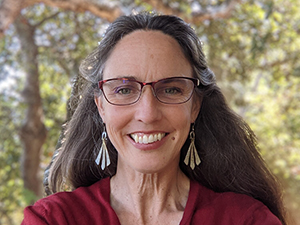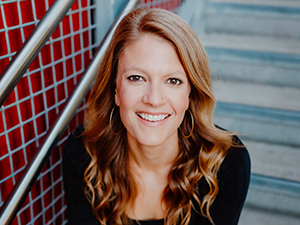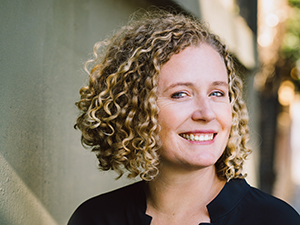This Week: Meet Our Economic and Housing Equity Writers on the Edge!
This week, meet three incredible alums writing about economic equity and housing issues. From the regulatory structures that economically support our most vulnerable citizens, to the physical structures that create the communities and housing in our cities, these three voices are changing the conversations around how and where we live.
Join us June 22 at our Garden Party to meet Natalie and hear her talk about her new book!
Will you help us to support courageous writers-on-the-edge like Natalie, Kim and Megan today?
Natalie Foster, 2023 Howard and Phyllis Friedman Fellow for an Inclusive Economy
“While I was writing The Guarantee at Mesa Refuge, I had a Toni Morrison quote on a post-it on my laptop that is now at the start of my book: ‘I stood on the border, stood on the edge, and claimed it as central and let the rest of the world come over to where I was.’ My writing process and the book itself have really been about ‘claiming as central’ ideas that often get dismissed as politically unfeasible; we can remake the American economy to guarantee the things we need to not just survive, but thrive.”
Natalie is a leading architect of the movement to build an inclusive and resilient economy that works for all. President and co-founder of Economic Security Project and Aspen Institute Fellow, her work and writing has appeared in The New York Times, USA Today, TIME, Business Insider, CNN, and The Guardian. Natalie’s first book, The Guarantee, asks us to imagine an America where housing, health care, a college education, dignified work, family care, an inheritance, and an income floor are not only attainable by all but guaranteed, by our government, for everyone. Find out more about Natalie Foster on her website.
 Kim Thompson, 2017 West Marin Community Fellow
Kim Thompson, 2017 West Marin Community Fellow
“It’s a great joy to work in the community land trust movement—one that resists defining land ownership as speculative and exclusionary—and redefines it toward community benefit and stability. My writing explores the places and people I’ve so loved—West Marin, California’s San Joaquin Valley, and East Texas, where my family goes back six generations. In the solitude of writing at the edge, there are sentences waiting to be born that may weave those stories together, rearranging me in the process, and creating another new kinship with the world.”
Kim supports capacity building efforts of grassroots groups, organizations and coalitions who desire to address equity through the formation of community land trusts and community-owned land. Most recently, she was executive director of the Community Land Trust of West Marin from 2012-2023. Before that she worked in California’s San Joaquin Valley to build healthy, equitable, and sustainable communities. Find out more about Kim on her LinkedIn page.
 Megan Kimble, 2022 Jeanette Pontacq Investigative Journalism Fellow
Megan Kimble, 2022 Jeanette Pontacq Investigative Journalism Fellow
“For me, writing on the edge means exploring ideas that exist outside the mainstream. In City Limits, I explored the idea of removing urban highways. It turns out that the best place to write about highways is nowhere near them, and that’s what Mesa Refuge offered me: a literal edge. I wrote almost a fourth of City Limitslooking out over the Tomales Bay from the West cabin at the Mesa Refuge, and I am so grateful for that time and space.”
Megan is an independent journalist and the author of City Limits: Infrastructure, Inequality, and the Future of America’s Highways. A former executive editor at The Texas Observer, Kimble has written about housing, transportation, and urban development for The New York Times, Texas Monthly, and Bloomberg CityLab. Find out more about Megan on her website.
***
Will you help us to support courageous writers-on-the-edge like Natalie, Kim and Megan today?
***

